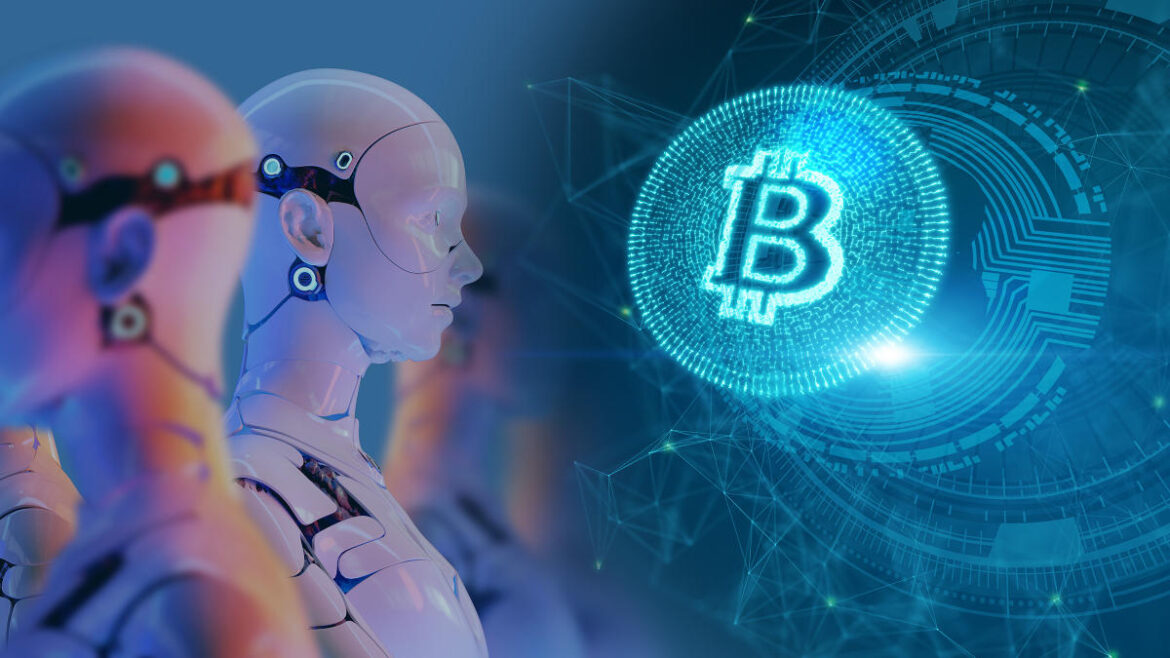From healthcare and banking to manufacturing and entertainment, the fast development of Can AI Kill Bitcoin has brought in a new era of technological disruption touching almost every sector. A startling theory has surfaced in crypto and tech groups as artificial intelligence capabilities explode: could AI kill Bitcoin? Though at first look the issue seems sensational, it invites a sophisticated and nuanced discussion on the interaction between two of the most groundbreaking technologies of our day.
The origins and ramifications of this concept will be discussed in this paper, together with the part artificial intelligence plays in blockchain ecosystems, the dangers and opportunities AI presents for Bitcoin, and whether this idea has any real basis or if it is only a speculative fiction. By the conclusion, you will have a clear, evidence-based knowledge of whether artificial intelligence actually has the capacity to undermine, replace, or even wipe off Bitcoin.
Grasping the Bitcoin-AI Dichotomy
Introduced in 2009 by pseudonymous Satoshi Nakamoto, Bitcoin is the first distributed digital money available worldwide. Designed as a peer-to–peer financial system, Bitcoin depends on a distributed blockchain and a consensus method known as Proof of Work (PoW.). Its basic ideas center decentralization, immutability, and censorship opposition.
Conversely, in most applications artificial intelligence (AI) is a centralized technology depending on big datasets, processing capability, and algorithmic modeling. Whether utilized in robotics, predictive analytics, or natural language processing, artificial intelligence systems are usually under control by institutions or developers with access to large computational infrastructure—often housed in cloud data centers run by Google, Amazon, or Microsoft.

This basic difference—Bitcoin’s decentralization against AI’s centralized design—forms the backdrop for the theory that AI could endanger or “kill” Bitcoin.
Might artificial intelligence launch a 51% attack on Bitcoin?
A 51% assault is the result of one organization acquiring majority control of the computing capability of a blockchain network therefore enabling it to block confirmations and control transactions. Technically possible, the cost and logistics of launching such an attack against Bitcoin are astronomically high.
Currently, hundreds of thousands of ASIC miners scattered throughout protect Bitcoin’s mining network. Data from Blockchain.com and Cambridge’s Centre for Alternative Finance indicates that the hash rate maintaining the Bitcoin network often tops 500 EH/s (exahashes per second). An artificial intelligence system would need control over immense mining infrastructure, vast energy resources, and capital expenditures extending into tens of billions of dollars to surpass this level.
An artificial intelligence would still be limited physically by chip manufacture and electrical prices even if it could create a more effective mining program or chip. Furthermore, any such attack would be self-defeating as well as economically illogical, therefore jeopardizing the very value AI could aim to regulate or profit from.
Artificial Intelligence Substacing a Better Protocol for Bitcoin
Among the more rooted theories is that artificial intelligence might provide a better bitcoin. Already, projects like Ethereum including smart contracts and approaching Proof of Stake to lower energy use show integration. Is AI capable of more?
New consensus systems or transaction throughput optimization in ways not yet imagined by human engineers could be created by artificial intelligence. Already pushing this frontier, projects like Fetch.ai and SingularityNET combine artificial intelligence with distributed platforms. But Bitcoin’s network effects, security record, and brand confidence over more than a decade are not readily replicable.
One of Bitcoin’s strengths is also its simplicity. Unlike more sophisticated blockchain systems, Bitcoin has a simple codebase and a consistent monetary policy—qualities much sought for in volatile financial conditions. Though it may develop, artificial intelligence is unlikely to invalidate Bitcoin’s use case as digital gold.
AI as a tool for enhancing Bitcoin
Ironically, artificial intelligence is more likely to improve rather than ruin Bitcoin. Already starting to support the Bitcoin ecosystem are several AI-powered apps. Blockchain trading algorithms, fraud detection, market prediction models, mining optimization—all of which involve artificial intelligence—are among their applications. Through simulations, it may highlight dubious activity, evaluate blockchain data for on-chain metrics, and even assist with protocol testing.
While Bitcoin miners utilize artificial intelligence models to maximize hardware efficiency and energy utilization, companies like Chainalysis use machine learning to track illegal transactions. With artificial intelligence turning from a danger to a necessary tool for protecting Bitcoin, this symbiotic relationship could strengthen over time.
Geopolitics’s and corporate interests’ roles
The geopolitical and corporate interest in both artificial intelligence and Bitcoin is another sometimes disregarded factor. Investing extensively in AI infrastructure are governments and major tech companies such Nvidia, Amazon, and Google. Countries like El Salvador have embraced Bitcoin as legal currency while large investors like BlackRock and Fidelity are starting Bitcoin ETFs.
Should artificial intelligence truly represent an existential threat to Bitcoin, established interests profiting from its ongoing existence and acceptance will most certainly object strongly. Moreover, countries cautious about AI supremacy by foreign powers could see Bitcoin as a hedge or substitute for centralized, AI-driven financial systems—especially in view of rising worries about censorship, data monopolies, and spying.
Ethical and philosophical aspects
Especially in light of the 2008 financial crisis, Bitcoin was developed as a reaction to centralized financial control. It captures a cypherpunk ideal of individual autonomy, privacy, and distributed government. Particularly in its present centralized form, artificial intelligence frequently conforms to a particular ethos—surveillance, prediction, control. In this regard, the worry that artificial intelligence might “kill” Bitcoin could be more symbolic than actual. It reflects a larger cultural and intellectual struggle between algorithmically-regulated systems and open-source, distributed networks.
Conclusion
Examining the technological, financial, philosophical, and pragmatic aspects of the theory reveals mostly no. Although artificial intelligence can theoretically endanger Bitcoin, it is more likely to develop alongside it, maybe strengthening its role as a basic asset in the digital era. Investigating their confluence might be a more positive way to present AI and Bitcoin than as enemies. Blockchain and artificial intelligence working together could create strong new technologies that respect both creativity and personal freedom.



